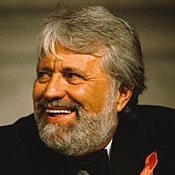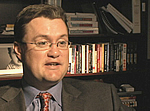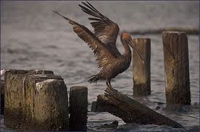 The Arkansas Economic Development Commission will be presenting television producer Harry Thomason the first “Arkansas Oscar” at the Friday, April 8, gala at the Governor’s Mansion, celebrating the 10th anniversary of UALR’s School of Mass Communication.
The Arkansas Economic Development Commission will be presenting television producer Harry Thomason the first “Arkansas Oscar” at the Friday, April 8, gala at the Governor’s Mansion, celebrating the 10th anniversary of UALR’s School of Mass Communication.
Continue reading “Film, TV Producer Thomason to Star at UALR’s Mass Comm Gala April 8”
 Dr. Robert Ulmer, professor and chair of the UALR Department of Speech Communications, discussed ethics and crisis communication to 500 faculty, student, alumni, and business leaders at the Freeman School of Business at Tulane University in New Orleans.
Dr. Robert Ulmer, professor and chair of the UALR Department of Speech Communications, discussed ethics and crisis communication to 500 faculty, student, alumni, and business leaders at the Freeman School of Business at Tulane University in New Orleans.
UALR Public Radio and the Hot Springs Music Festival will host international jazz artist Amir Gwirtzman of Tel Aviv, Israel, for a 7 p.m. Feb. 19, performance at Stella Boyle Smith Concert Hall in UALR’s Fine Arts Building.
AETN – the Arkansas Educational Television Network – and UALR Public Radio/KUAR FM 89 invite the public to a free screening of “For Once in My Life” as part of Community Cinema at 6 p.m. Monday, Jan. 31, at Roosevelt Thompson Library, 38 Rahling Road in Little Rock.
Dr. Thomas Guyette, chair of UALR’s Department of Audiology and Speech Pathology, has been appointed editor of the Cleft Palate-Craniofacial Journal. Guyette, who earned his Ph.D. in speech pathology at the University of Kansas, focuses his research and teaching interests to speech physiology, articulation and phonological disorders, and craniofacial speech disorders.
UALR Professor Robert R. Ulmer literally wrote the book on how to communicate in a crisis — “Effective Crisis Communication: Moving from Crisis to Opportunity.” His second edition is coming out in November.
So no wonder that when the largest and longest lasting environmental disaster in the history of the United States erupted this summer, directors of the Unified Command responding to the BP oil gusher came calling on Ulmer, chair of the Department of Speech Communication in the College of Professional Studies.
“I got a call one Saturday from the Unified Command about 20 days into the event,” Ulmer said of the sinking of the Deep Water Horizon drilling rig and collapse of the blowout preventer on the BP well five miles underneath the surface of the Gulf of Mexico. “They were interested in the risk and crisis communication theory research I’ve been doing, particularly on renewal.”
His research on renewal shows how organizations that respond ethically, openly, and with transparency to a crisis eventually can grow and prosper. It all depends on how the organization communicates through the crisis, developing ethical and open communication strategies, learning from the event, and developing a prospective vision for moving forward.
“The next day, they called me back and asked if I would come to Houma, La. (where much of the Gulf rescue and recovery effort was located) and work,” Ulmer said. The Houma operation was part of the overall response effort — the Unified Area Command — headed by Ret. Coast Guard Admiral Thad Allen.
A preeminent authority in the field of crisis communication, Ulmer is author of five books and more than 40 articles integral to the study of communication in response to disaster, whether it is man-made or natural.
For almost 15 years, the Canadian-born Ulmer has been a recognized expert in the field of crisis communication, working to calm the waves created by an emergency. He was one of the first to focus research on finding positive results from a disruptive wave of crisis. This counter-intuitive approach is now used throughout the business and health communities as a way to communicate crisis-driven information effectively.
Throughout the summer, Ulmer worked on crisis communication strategies for the command, developing communication plans, and advising on messages about public health and potential risks with the clean up effort. He attended community sessions to listen to the concerns of the public and assessed how the messages were being received.
“People think communication is nothing more than talking, but most of it is about listening and making sure you are answering people’s important questions and meeting their information needs,” Ulmer said.
Communicators need to be aware of their audience. During the BP disaster, engineers, scientists, marine biologists, and other experts understood the chemistry of the situation. But that doesn’t mean the shrimper on the dock or the shop owners in the affected small towns understood.
“There is no substitute for providing the best possible information to people to help them protect themselves during the event,” he said. “You have to tell them what you know, you have to tell them what you don’t know, and you have to tell them what you are going to do to find out.”
 Following the event, Ulmer was assisted by Andrew Pyle, a UALR graduate student from Mountain Home, who was able to fly to Houma to see the Unified Command in operation and collect data. Since then, Pyle has interviewed the public information officers from the joint information center involved in the crisis, and is developing a thesis based upon the “lessons learned” from the disaster and the response to it.
Following the event, Ulmer was assisted by Andrew Pyle, a UALR graduate student from Mountain Home, who was able to fly to Houma to see the Unified Command in operation and collect data. Since then, Pyle has interviewed the public information officers from the joint information center involved in the crisis, and is developing a thesis based upon the “lessons learned” from the disaster and the response to it.
“The people at BP, the Coast Guard, and all the other agencies are very excited about the prospect of the study,” Ulmer said. “This is an unprecedented research opportunity.”
Not only was the BP disaster the largest in American history, it was the longest lasting. The Exxon Valdez oil spill in Alaska in 1989 involved thousands of responders. At the height of the BP response, 25,000 to 35,000 people were under the command of Admiral Allen.
Ulmer said Pyle’s research will be defended in December and he anticipated publication to follow.
The crisis communicator is now engaged in another project with the federal government — this time Homeland Security on issues of national safety, risk, and crisis communication following large-scale crisis events.
“How do you build resilience into communities; how do you prepare and communicate and respond to low-probability, high consequence events,” Ulmer said. “People from Israel, Northern Ireland, and all over the world who regularly deal with large scale complex crises were at a recent event talking about how to respond effectively. We need to learn from them.”
One thing about crises, Ulmer said, is that every organization will have them. And the time to prepare for them is now by operating day-to-day in an open, transparent, and responsible way.
“Organizations that are open and honest before and during a crisis are better prepared to produce those values following the event,” he said.
“Theory to Practice: How Southwestern Educators Impact the Field of Criminal Justice” is the theme of the Southwestern Association of Criminal Justice Conference opening Oct. 7 at the Wyndham Riverfront Hotel in North Little Rock.
Dr. Jamie Byrne, associate professor and director of the School of Mass Communication, has received the Appreciation Award from the Girl Scouts of America for her work on the organization’s Council Realignment Committee. The panel worked for more than a year to combine the five legacy councils — all their own corporations — into a single unit.
Prior to the November election, UALR and three organizational partners will provide an opportunity for members of the community to talk with each other about race and ethnicity in an atmosphere free of partisanship. The first gathering is Oct. 5.
Continue reading “UALR to Explore Impacts of Racial, Ethnic Issues”
